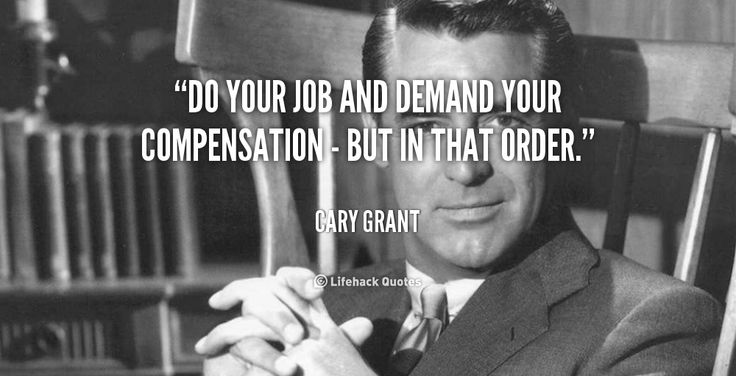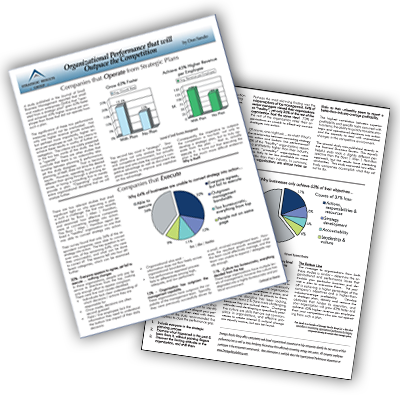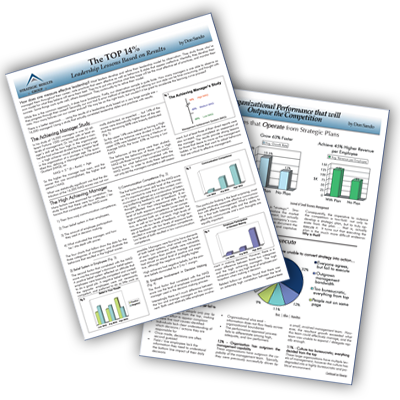“I know this has come up before; but now it’s personal,” starts Rich. “A couple months ago an employee came to me asking for a raise mid-cycle. Now a second person has come demanding the same thing. I wasn’t exactly sure what to do the first time; now I’m concerned that this may be the start of an epidemic. If I give in and agree, will it be just the beginning of many such demands?”
“What is your compensation philosophy?” asked Joe. “And what is your current practice?”
“Our philosophy is that we want to offer a competitive salary, above average pay for above average workers,” Rich responded. “We currently do annual performance reviews in January / February, and then pay raises happen the first of April. We have a pay range for each position based on the job description and scope of responsibilities. We attempt to survey the market and keep up with job market trends. These two employees happen to work at one of our international locations; the job market there can be quite different than what’s happening in the U.S.”
“It wasn’t that long ago when the job market was extremely hot,” noted Sarah. “Wages were going up 20 – 25% in some sectors. We couldn’t keep up!”
“Besides the job market,” Mark commented, “you also need to consider the employee’s performance. Is this an A player? Or something less?”
——-
Rich answered: “The first employee was an average performer. After talking with his manager, we decided if he left, it wouldn’t be that big of a deal. But this 2nd person I mentioned is doing quite well; could even be a superstar someday. Her manager doesn’t want to see her go.”
“Besides employee performance, you also need to consider the company’s profitability / financial position”, chimed in Martin. “Sometimes you want to give a raise, but you feel like you really can’t. One off, maybe you can absorb the increase; but if there’s a domino effect, you could find yourself painted into a corner.”
Don chimed in, “HP had a policy of not reacting when an employee came forward to say they had a job offer at higher pay from another company. I think there were three reasons: (1) HP prided itself at paying at the upper end of the pay range; it was rare that an employee was significantly below their market value. (2) HP also believed that they were one of the best places to work. Someone could possibly get high pay somewhere else; but it wouldn’t have the HP culture! (3) HP also believed the best way to stop an epidemic was to not respond to the first request. In retrospect, I will say that it was not at a time when the job market was going crazy. Not sure if they ever changed their policy depending on market conditions?! Likewise, not sure if this policy applied to mid-upper management level; maybe they took those cases one at a time. Plus, I’m not sure HP has the same dynamic culture they had when I was there!”
Melissa noted, “I think you also have to assume that employees talk. If someone gets a significant raise, especially off-cycle, you should probably assume others will find out. If you’re lucky, the employee won’t say anything; nor will the payroll clerk who suddenly decides they also deserve a pay-raise. But I would not assume it would be kept quiet.”
“We did something mid-cycle across the board last year when salaries were going crazy,” contributed James. ”We had given raises that averaged 4% around 6 months earlier; but realized we were suddenly behind the curve. So mid-cycle we gave an additional 8 – 12% increase to everyone. In a couple cases we even went above 12%! But that was for a couple superstars we definitely did not want to lose. We were fortunate, profitability was good. We didn’t want to deal with a lot of turnover and we felt we could afford it. It was obviously great for morale; not sure if we’ll ever do that again; but you never know! I feel sorry for non-profits that are typically on tight budgets, and any company that is financially strapped. An exit of two or three key employees could be a disaster.”
“I wish we were in your position, James”, lamented Rich. “We certainly could not afford an across-the-board increase.”
“One other thought,” mentioned Tom. “You could also consider the exchange rate, given that this is an off-shore site, and I assume you do all your financials in USD. Maybe a 20% pay raise there only impacts your financials a couple percent here.”
“That’s a great point, Tom. I hadn’t really thought about that aspect. I’m going to look into that for sure;” Rich was a little encouraged.
“OK”, continued Rich. “My takeaway is that I need to consider all these factors:
- Our compensation philosophy & current practices
- The employee’s performance … will we lose them? Is this a front-line contributor or a manager?
- Job market trends; will others follow?
- Company profitability / financial situation / exchange rate
- Assume that others will find out (especially with front-line employees)
Why are these things never easy?”
“That’s why you get the big bucks, Rich!” Melissa concluded the conversation with her wry smile!
——–
If you’ve ever wondered what you could learn from your peers, found yourself feeling a bit lonely at the top and/or wanting to get feedback / confirmation from trusted colleagues, yet had no inner circle of trusted confidantes to turn to, this is your chance to give Inner Circle CEO Peer Groups a try.
Request to participate in an actual session at no cost with no obligation to join and a 90-day money back guarantee.




POLL
The Bureau of Labor Statistics calculates the annual Cost of Living Adjustment (COLA) that is used by the Social Security Administration. It’s also an indicator of expected annual salary adjustments.
Which year had highest COLA (8.7%) for the past six years (2018 – 2023)?
- 2018
- 2019
- 2020
- 2021
- 2022
- 2023
The correct answer will be revealed (along with all COLAs for the past six years) after you submit your vote.
Hear what one member says about why trying Inner Circle is worth a shot!




